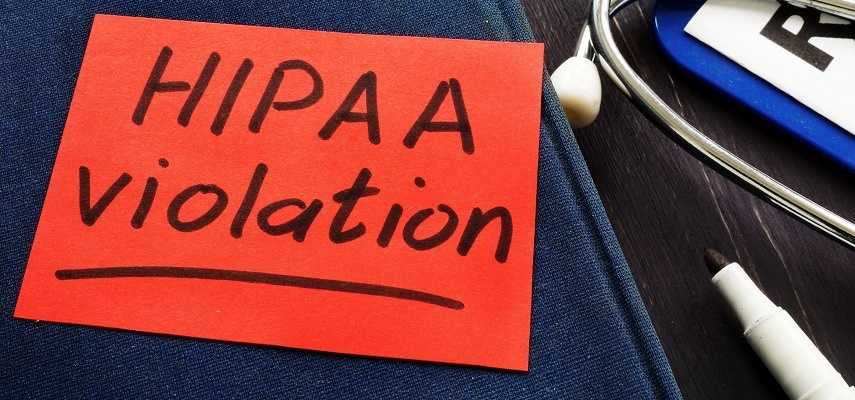
Typically, HIPAA (Health Insurance Portability and Accountability Act) laws are designed to provide protection to patients’ protected health information (PHI). If you’re running a business that manages, stores, or transmits PHI, you’re bound to follow the security, privacy, and breach notification rules under HIPAA. Your failure to stay compliant with specific policies can result in certain violations which are costly and damaging.
Keep reading this article to learn about the different consequences of violating HIPAA guidelines.
What Is A HIPAA Violation?
Essentially, a HIPAA violation refers to a situation where a covered entity or a business entity doesn’t comply with the provisions of the said federal statute. It can be unintentional or deliberate, depending on the situation. Some common examples of HIPAA violations can include:
- Posting PHI on social media platforms without the patient’s consent;
- Not having enough encryption for PHI;
- Unauthorized access to PHI;
- Negligently losing company devices;
- Accessing protected health information from unsecured locations;
- Failing to notify authorities of a breach;
- Improper disposal of PHI and other similar situations.
There are several types of violations to keep in mind regarding HIPAA compliance. Most of these things happen because of the organization’s lack of risk management plans. To ensure the violations won’t happen again, it’s best to get a cyber security risk assessment template from a reliable service provider to conduct accurate risk assessments.
What Happens When You Violate HIPAA Laws?
Now that you know what a HIPAA violation is, it’s time to familiarize yourself with the things that may happen when your business violates HIPAA laws. The following are the consequences for not complying with the federal legislation’s rules and regulations:
1. Financial Penalties
This is one of the consequences of violating the HIPAA guidelines. However, it’s important to note that the financial penalties you’re going to pay may vary depending on the nature of the violation and your business’ response about it.
Typically, the financial penalties can be categorized into the following:
- First Tier: When your organization does not know about the breach, the penalty will range from USD$100 to USD$50,000 per incident.
- Second Tier: Your penalty would be from USD$1,000 to USD$50,000 per incident if your organization knew of the violation, but you could not have avoided it.
- Third Tier: When your business acted with willful neglect but resolved the problem within 30 days, your penalty would range from USD$10,000 to USD$50,000 per incident.
- Fourth Tier: When your organization violated a HIPAA rule with willful neglect and failed to correct the issue within 30 days, you’d pay a penalty of USD$50,000 and above per incident.
2. Criminal Charges
Another consequence of violating HIPAA laws is the possibility of getting criminally charged for the incident. This usually happens when the violations are severe enough that they cause significant damage to the patient and the organization. Like the financial penalties, the criminal consequences of HIPAA violations are divided into the following categories:
- When your business didn’t know of the violation committed, the penalty would be up to 12 months of imprisonment.
- When the violation involves intentional deception to gain access to PHI, the party responsible would be penalized with up to five years of incarceration.
- When there’s malicious intent, the penalty would be ten years of imprisonment.

3. Financial Losses And Damaged Reputation
All your employees are bound to comply with certain HIPAA protocols. When they fail to follow these rules, they may face some sanctions. For example, an employee who intentionally breaks HIPAA rules and regulations may be terminated from employment.
Unfortunately, when this happens, your business may incur significant financial losses. On top of the fines being paid to the offended party, your organization also stands to lose a huge amount of money due to employee turnover. These can be due to expenses related to recruitment, training, and productivity loss. For example, when you don’t have enough workforce, it can affect the business’s overall productivity, thereby losing more money in revenues as well.
On the other hand, violating HIPAA guidelines may make your business less reputable. The non-compliance with certain rules and regulations may discourage your clients from doing business with you again. They may start seeing your organization as less trustworthy, especially if it’s involved in specific cybersecurity attacks and other related violations. As a result, your organization ends up with a damaged reputation, translating to financial losses.
Bottom Line
There’s nothing more challenging than recovering from the consequences of HIPAA violations. Because of this, it’s essential to take the different aspects of this federal legislation seriously. When you fail to do so, you’re in huge trouble.
Therefore, keep the information mentioned above in mind to be aware of the possible consequences of violating HIPAA guidelines. The more you know about them, the more you’ll do your best to stay compliant with the policies and procedures provided by the federal statute.


































